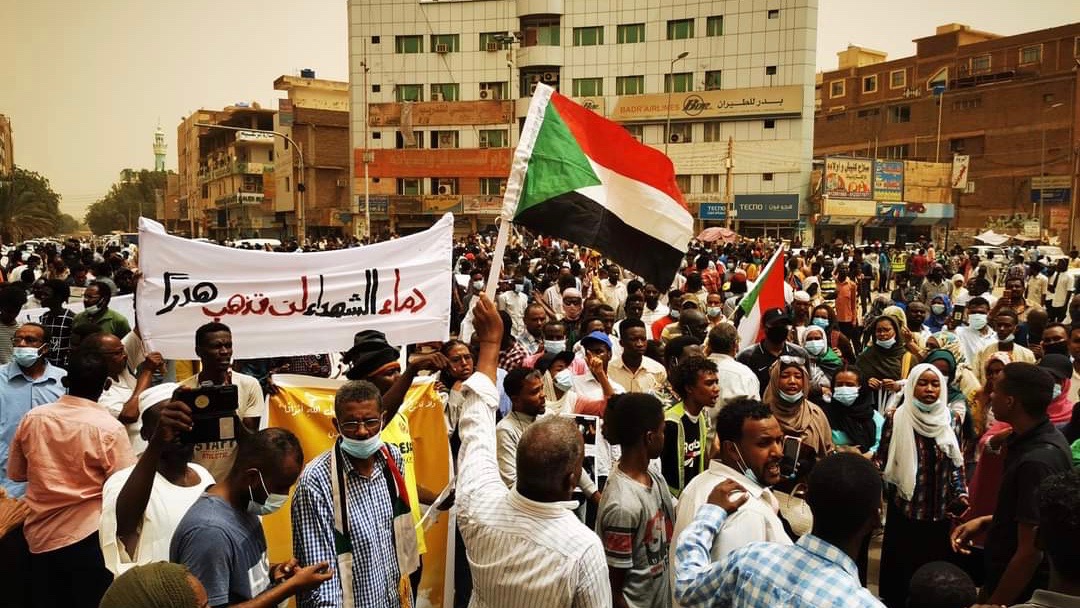Hundreds took to the streets in Sudan’s capital Khartoum on Thursday, June 3 to honor those who were killed when the Sudanese army massacred pro-democracy protesters in 2019. Protesters demanded justice and were seen carrying the national flag and banners as they marched to the cabinet building and the public prosecutor’s office.
Today, Sudan commemorates the #June3 Massacre, also known as the Ramadan 29 Massacre, for the second year in a row. @SudanPMHamdok called the massacre “a wound that will not heal unless justice is achieved and criminals are brought to justice”https://t.co/xDx7AeIxvs#SudanNews pic.twitter.com/6ugsvXdx78
— Radio Dabanga (@RadioDabanga) June 3, 2021
The protests were called by the Sudanese Professional’s Association and Resistance Committee, which had led the agitation in 2019 against the decades-long rule of Omar al-Bashir that led to his ouster.
During the pro-democracy protests in 2019, a gathering outside the military headquarters demanding political change and transfer of power to a civilian administration was attacked by the army on June 3. At least 128 protesters were killed and hundreds wounded. There were also allegations of rape and torture.
The military had by then deposed al-Bashir, who had ruled the country for almost 30 years, and had formed a transition authority dominated by its officers.
Protests against the June 3 killings have been organized regularly since then. The protests on Thursday were joined by the families of the victims of the massacre.
The government had closed off the main roads leading to the army headquarters and urged the demonstrators to stay away in a statement issued a day before.
The army has denied its involvement in the massacre. Following a massive public outcry, the Sudanese transitional government appointed an “independent committee” in 2019 to investigate the killings. However, the committee has failed to submit its report yet. Protesters have demanded an international investigation into the massacre.
The transitional government in Sudan has faced severe criticism and public unrest due to its failure to fulfill the mandate of the 2019 pro-democracy protests. Its policies towards rebel groups, the economic situation in the country, and its foreign policy have all come under heavy public scrutiny and led to regular protests.
The protest against al-Bashir’s rule started after a severe deterioration in the living conditions of the people following a steep rise in the prices of essential goods, lack of employment, and a stagnating economy amid a civil war-like situation in the country with the strong role of the army in civil administration. Most of these issues remain unaddressed even after two years. The army has remained a powerful player in Sudanese politics and the civil war situation in the country continues. Instead of working to improve people’s lives, the new regime has chosen to ally with countries such as Israel and the US.
Dr. Fathi Elfad of the Sudanese Communist Party, while talking to Peoples Dispatch, had even accused some sections of the pro-democracy movement in government of betraying the movement.
Last month, the security forces had opened fire on a similar protest, killing two protesters and wounding many others.
Sudanese prime minister Abdalla Hamdok issued a statement a day before the protest on Wednesday, saying that his government has done its best to achieve justice for the victims of the massacre. He admitted that security agencies being a crucial part of the transitional government “has sometimes slowed down justice and delayed the submission of information prosecutors need for their investigations,” Reuters reported.





